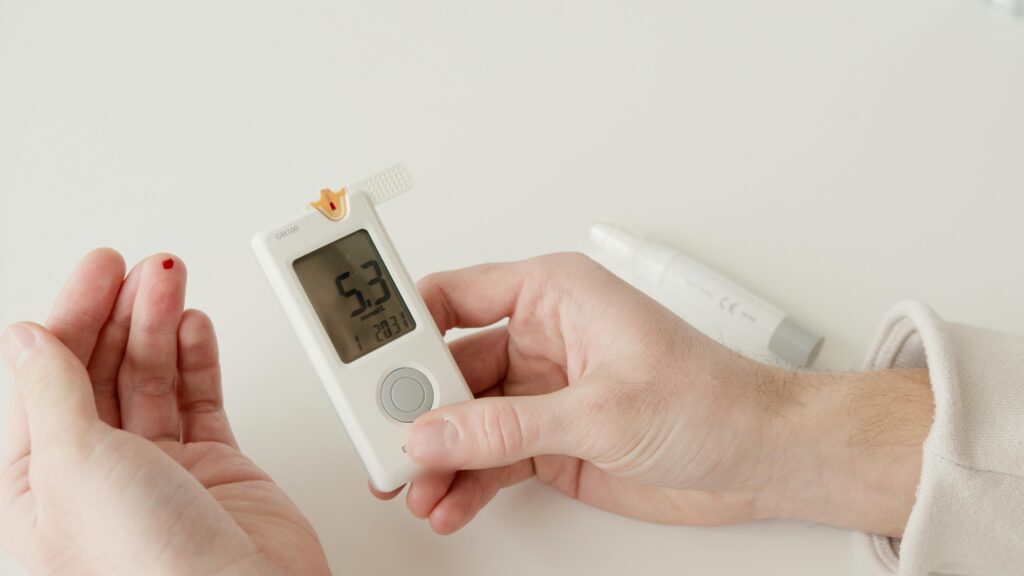Diabetes is a chronic condition that affects millions worldwide, leading to serious health complications if not managed properly. One of the key aspects of effective diabetes management is controlling blood sugar levels. This article presents seven essential tips to help you master diabetes management and keep your blood sugar within a healthy range.
Table of Contents
1. Understand Your Carbohydrate Intake
Carbohydrates directly impact blood sugar levels. It’s crucial to understand how different types of carbohydrates affect your body. Focus on:
- Whole Grains: Foods like brown rice, quinoa, and whole wheat bread provide fiber and help regulate blood sugar levels.
- Fruits and Vegetables: These are rich in vitamins and minerals but should be consumed in moderation, particularly starchy options like bananas and potatoes.
- Counting Carbs: Keep a record of your carbohydrate intake to make informed choices and avoid spikes in blood sugar.


2. Monitor Blood Sugar Levels Regularly
Regular blood sugar monitoring is essential for effective diabetes management. Use a glucose meter to check your levels at different times throughout the day, such as:
- Before and after meals
- Before and after exercise
- When feeling unwell
This practice helps you understand how different foods and activities affect your blood sugar and enables you to make necessary adjustments.

3. Create a Balanced Meal Plan
A well-structured meal plan can help manage diabetes effectively. Consider the following tips when planning your meals:
- Incorporate Lean Proteins: Foods like chicken, fish, tofu, and legumes can help you feel full longer and stabilize blood sugar levels.
- Choose Healthy Fats: Opt for sources of unsaturated fats like avocados, nuts, and olive oil while avoiding saturated and trans fats.
- Portion Control: Be mindful of portion sizes to prevent overeating and spikes in blood sugar.
4. Stay Physically Active
Regular physical activity is vital for blood sugar control and overall health. Aim for at least 150 minutes of moderate-intensity aerobic exercise each week, such as:
- Brisk walking
- Cycling
- Swimming
In addition to aerobic exercise, include strength training exercises at least twice a week to enhance insulin sensitivity and help manage weight.
The Benefits of Staying Hydrated
Staying properly hydrated is often overlooked in diabetes management. Drinking enough water helps regulate blood sugar levels and supports overall health. Aim for:
- At least 8 cups of water daily
- Herbal teas or infused water for variety
Avoid sugary drinks and limit caffeine intake, as these can lead to fluctuations in blood sugar levels.

5. Get Enough Sleep
Quality sleep is essential for managing diabetes. Sleep deprivation can affect insulin sensitivity and lead to higher blood sugar levels. To improve your sleep:
- Aim for 7-9 hours of quality sleep each night.
- Establish a relaxing bedtime routine, such as reading or practicing meditation.
- Keep your bedroom dark, quiet, and cool to promote restful sleep.
6. Manage Stress Effectively
Chronic stress can negatively impact blood sugar levels and overall diabetes management. Implement stress-reducing techniques, such as:
- Mindfulness and meditation
- Deep breathing exercises
- Yoga or tai chi
- Engaging in hobbies or activities you enjoy
The Importance of Regular Health Check-ups
Regular visits to your healthcare provider are crucial for diabetes management. During these check-ups, your doctor may:
- Monitor your blood sugar levels and adjust medications as needed
- Check for diabetes-related complications
- Provide personalized advice on diet and lifestyle changes
Early detection of potential complications allows for timely interventions, improving your overall health.
7. Stay Consistent with Medications
If you’re prescribed medications or insulin for diabetes management, consistency is key. Take your medications as directed and discuss any side effects or concerns with your healthcare provider. Consider these tips:
- Use a pill organizer to keep track of medications
- Set reminders on your phone or use an app to help you remember your doses

Conclusion
Effective diabetes management is a lifelong commitment that requires dedication and awareness. By following these seven essential tips, you can take control of your blood sugar levels and reduce the risk of complications associated with diabetes.
If you have questions or need personalized guidance on diabetes management, feel free to contact our health experts at Health Authentica. Together, we can help you achieve your health goals!










